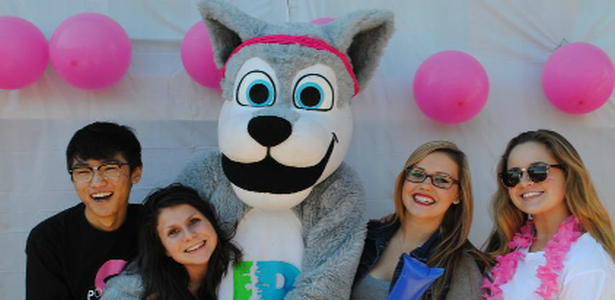As a precursor to the federal election and the upcoming Student Vote (which will take place Wednesday, throughout the day), four candidates from IRHS students' two main ridings came to our school on Thursday for a question/answer session to talk about important national issues and the concerns important to their campaigns.
The candidates started off by introducing themselves. We had David Doel, from the Green party (who wanted to have more proportional representation, rather than the system we have now, where a fraction of the population, after taking into consideration those who didn’t vote, voted to support the current government); Pam Damoff, from the Liberal party (who wanted young people getting more involved in their government, by voting once they become of age and possibly by joining a political party); David Clement, from the Libertarian party (who felt that young people, when they are at the age of majority, should have enough say in their governmental processes to overturn policies of their parents that they think are useless and waste money); and Che Marville, from the NDP (who wanted to lower the voting age (a goal that Doel said his party shared) and for there to be votes, presumably general ones, on more issues. Sadly, no representatives from the Conservative party (the only other party represented in our two main ridings) showed up. We had two from the Oakville riding (Doel and Marville) and two from the Oakville North -- Burlington riding (Damoff and Clement). After the introductions, Stephan Milek, a grade 10 student who acted as host for the discussion, asked the candidates some questions.
The first topic of discussion was the refugee crisis. They all seemed in favor of allowing many immigrants in. Doel, Damoff, and Clement all mentioned the importance of improving our foreign policy and solving the crisis at its roots. Clement talked about the economic and social benefits of immigration, and Marville wanted to try to create better systems for integrating the immigrants into their new communities and helped them settle in.
Then they were all asked about what they wanted to introduce into Oakville to make the town better. Doel, the Green Party candidate, wanted to introduce more green energy systems into the town, ultimately putting $1 billion into green technology every year. He wanted to encourage the use of electric cars, saying that he thought that we could be fossil-fuel-free by 2050. The Liberal candidate present, Damoff wanted to raise awareness in the community of the plight of First Nations people, especially youth, throughout the country, and to get the local community more involved with an effort to help them. For the town itself, she wanted to improve public transit and youth programs and involvement. Clement, the Libertarian, wanted to localize government- to make more local decisions instead of bringing them up to the federal level. Marville, from the NDP, also wanted to improve public transportation, as well as encourage innovation and entrepreneurship in Oakville.
Next, students from the audience asked questions. The first question was about the recent immigration reform, bill C-24, which dealt with deportation of terrorists. All of the candidates came out as against the bill- unsurprisingly, since it has had a very negative reception from a lot of the populace.
Lastly, an issue that had already been mentioned, the issues that many First Nations communities have, was brought up. “We’ve already heard about the problems, but what are your solutions?”, a student asked. Apparently, this issue was important to the candidates, many of whom had volunteered personally with such communities. Although Melville and Doel seemed to agree with Damoff when she said that the best solution would be to sit down with First Nations groups and help them find their own solution (Marville mentioned that we have to recognise that before Canada existed, 140 nations were here already), Clement wanted to repeal the Indian Act, which lists Aboriginal peoples as wards of the nation of Canada, and provides some of the limited financial support that these groups already have. He believes that without that, Aboriginal groups will be more independant and able to create self-sustaining communities.
Many students showed up to listen to the candidates and take notes on their policies. Everyone is encouraged to inform themselves about their local candidates in preparation for the Student Vote this Wednesday!





0 comments:
Post a Comment